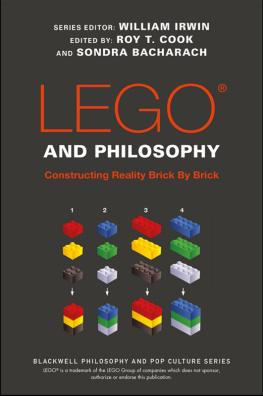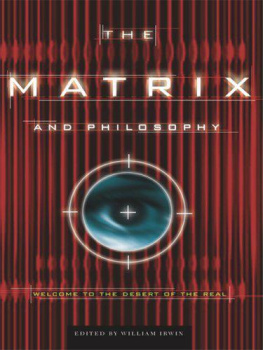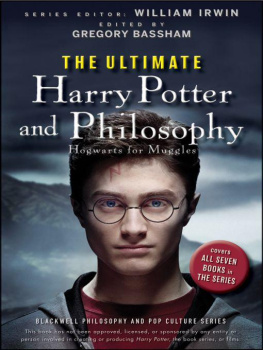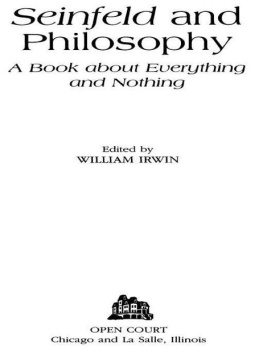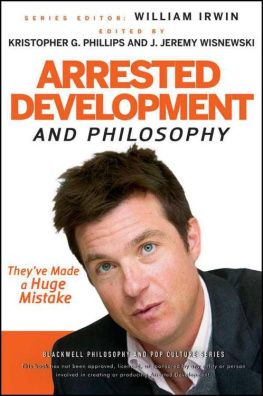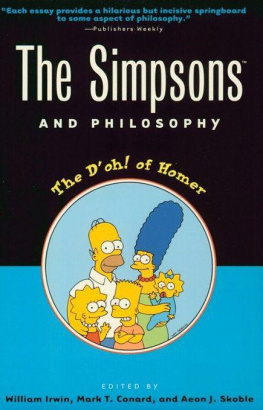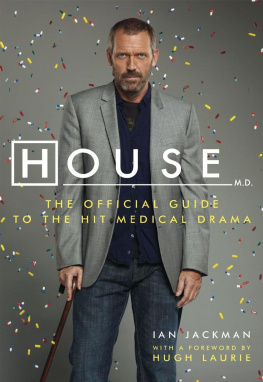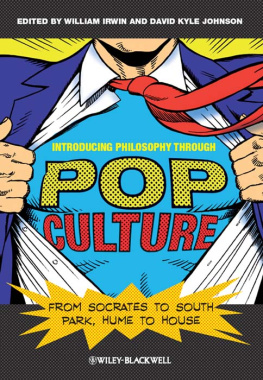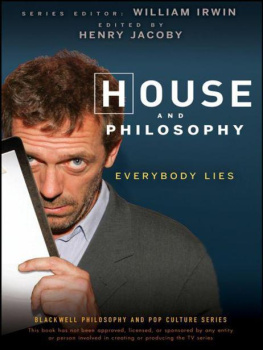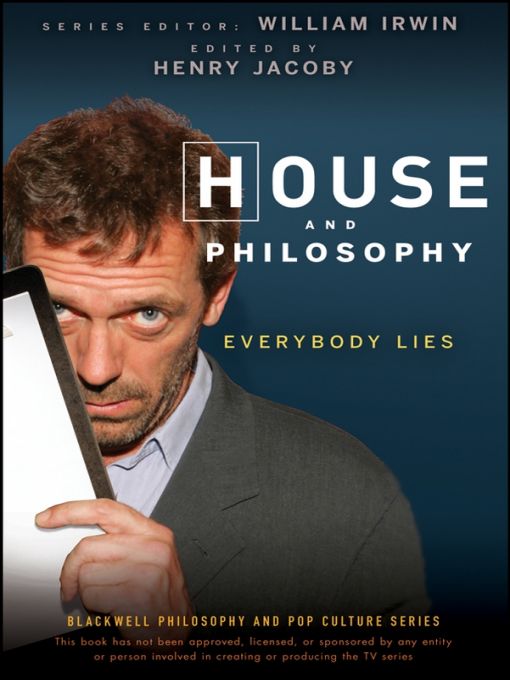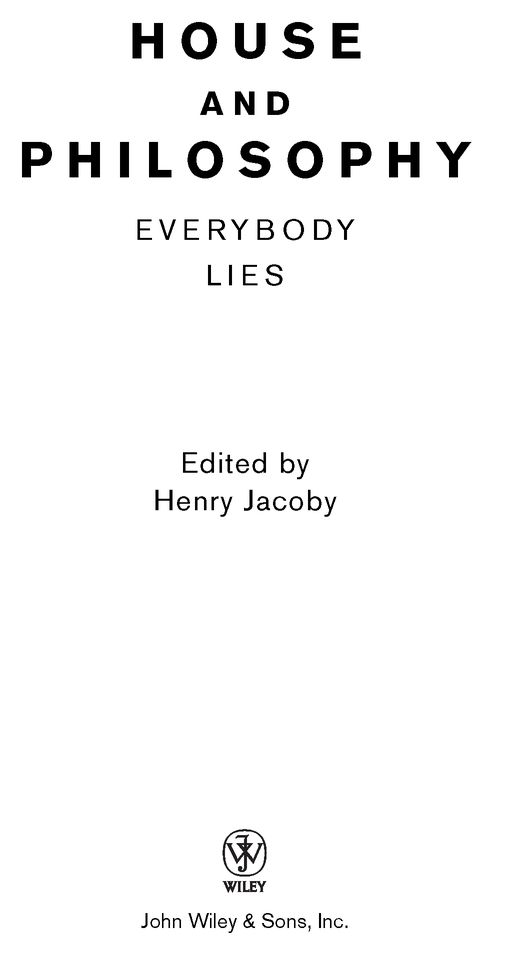Table of Contents
The Blackwell Philosophy and Pop Culture Series
Series Editor: William Irwin
South Park and Philosophy
Edited by Robert Arp
Metallica and Philosophy
Edited by William Irwin
Family Guy and Philosophy
Edited by J. Jeremy Wisnewski
The Daily Show and Philosophy
Edited by Jason Holt
Lost and Philosophy
Edited by Sharon Kaye
24 and Philosophy
Edited by Richard Davis, Jennifer Hart Week,
and Ronald Weed
Battlestar Galactica and Philosophy
Edited by Jason T. Eberl
The Office and Philosophy
Edited by J. Jeremy Wisnewski
Batman and Philosophy
Edited by Mark D. White and Robert Arp
Heroes and Philosophy
Edited by David Kyle Johnson
ACKNOWLEDGMENTS
What? You Want Me to Thank You?
First, I want to thank Bill Irwin for giving me the opportunity to work on this book. I couldnt have done it without his guidance, patient help, and consistent sage advice. Bill, youre truly one of the good guys, and it has been a pleasure to work with you.
Thanks to Jeff Dean, who first got things rolling. Since then, Connie Santisteban and all the nice people at Wiley have been great to work with. Thanks for all your help and support throughout this project.
Im grateful to my fellow philosophers who contributed their wonderful essays. Your good work made my job easy.
My great friend and fellow guitar god Alan Berman actually read what I wrote and made creative suggestions. Not only that, he was always there when needed.
Without the talented people who work on House, there, of course, would be no book to write. Thanks for your brilliant hour of intelligent entertainment each week.
At home, my two cats, Bunkai and Willow, helped a lot, mostly by sleeping so I could work. They also took turns sitting with me when I needed inspiration. They are true Zen Masters.
Finally, theres my wife, Kathryn. Sweeter than Cameron, more patient than Wilson. And she helps with the typing. I cant do any of it without you.
INTRODUCTION
Read Less, More TV: A Cranky, Slightly Rude Introduction
Henry Jacoby
Dr. Gregory House, that brilliant pill-popping bastard, limps along the halls of Princeton-Plainsboro Teaching Hospital, knocking aside medical ethics with a wave of his cane. He tells us that everybody lies, that humanity is overrated, and that its the nature of medicine that youre going to screw up. And one more thing: Read less, more TV! Yeah, House says that, too. But he wasnt talking about this book. You really should read this book, the one youre now holding in your hands. House would want you to.
But why should we listen to him? Isnt he a jerk? Well, yes, but unlike the guy standing next to you reading the book on intelligent design, House is cool. House plays a mean guitar and a killer piano, and chicks think hes sexy (its the blue eyes). He even had a pet rat named Steve McQueenhow cool is that? And one more thing: hes brilliant. So who cares if he thinks that seizures are fun to watch but boring to diagnose? Whats not to love?
I love House, and so do the contributors to this volume. Humanity may in fact be overrated, but not this bunch! I never once thought about firing them all and holding auditions for a new team. But more on them in a minute (they can wait, just like the clinic patients House ignores). Lets get back to the Whats not to love? question.
Have I forgotten about the rudeness and the way House ridicules everyone elses ideas? (I tried that, by the way. I thought maybe Id be branded an eccentric genius and be paid accordingly. It didnt work.) Have I forgotten that hes a drug addict? Have I forgotten that he once asked if it was still illegal to perform an autopsy on a living person? No, I havent forgotten these things, but remember, he also saves lives. As Dr. Cuddy pointed out to that nasty Tritter fellow, he saves a lot more lives than he loses.
Like Socrates and Sherlock Holmes, House is intrigued by puzzles. His stubborn, relentless desire for the truth combined with his extraordinary reasoning skills means that the puzzles get solved, while the lives get saved. Hospital rules be damned!
Speaking of reasoning and truth, House has a lot to say about philosophy as well. And isnt it time that I got around to the philosophy part of House and Philosophy anyway? For House, Occams Razor holds that the simplest explanation is that almost always somebody screwed up. How about reality? Philosophers argue a lot about that. House says that reality is almost always wrong. And the Socratic method! He loves that. He says its the best way we have of teaching everything apart from juggling chainsaws.
The contributors to this volume (its time to talk about them; theyre not clinic patients, after all), just like Houses team, are first-rate. They expertly expand on Houses insights and examine his character. Its all in this book: Sartre and Nietzsche, Socrates and Aristotle, logic and luck, love and friendship, and even Zen. Some of it is pretty weird, really, but I like it. As House says, weird works for me. Now, bring me the thong of Lisa Cuddy!
PART ONE
HUMANITY IS OVERRATED: HOUSE ON LIFE
SELFISH, BASE ANIMALS CRAWLI NG ACROSS THE EARTH: HOUSE AND THE MEANING OF LIFE
Henry Jacoby
We are selfish, base animals crawling across the Earth. Because we got brains, we try real hard, and we occasionally aspire to something that is less than pure evil.
One Day, One Room
So says Gregory House. It doesnt sound like he thinks life has any meaning, does it? Yet our Dr. House is leading what Socrates called the examined life, and what Aristotle called a life of reason, and such a life is a meaningful one. But how can this be? Could someone like House, who apparently thinks that life has no meaning, lead a meaningful life? And does House actually believe that our lives are meaningless?
If You Talk to God, Youre Religious; If God Talks to You, Youre Psychotic
Many people think that if there were no God, then life would have no meaning. So lets start there. Lets assume that our lives have meaning because we are fulfilling Gods plan. In this case, meaning is constituted by a certain relationship with a spiritual being. If God does not exist, then our lives are meaningless. Or even if God does exist, but were not related to Him in the right way, then again our lives are meaningless.
Perhaps God has a plan, and your life is meaningful to the extent that you help God realize that plan. For example, in the Kabbalah, the mystical writings of Judaism, were supposed to be helping God repair the universe. This is a good example of what I mean; were supposed to be helping Gods plan succeed. A person who does this by doing good deeds and the like is thereby leading a meaningful life. Notice that someone could, in this view, lead a meaningful life, even if he believed that life had no meaning. Such a person might be doing Gods work without realizing it. Could this be the sense in which House is leading a meaningful life?
Well, House doesnt believe in God; thats pretty clear. He consistently abuses those who dofor example, the Mormon doctor he calls Big Love in season four. In the season one episode Damned If You Do, the patient, Sister Augustine, is a hypochondriac. As another Sister explains to House that Sister Augustine believes in things that arent real, House quips, I thought that was a job requirement for you people. As another example, in Family House finds Foreman in the hospital chapel (Foreman is feeling remorse after having lost a patient), and he whispers, You done talking to your imaginary friend? Cause I thought maybe you could do your job.


